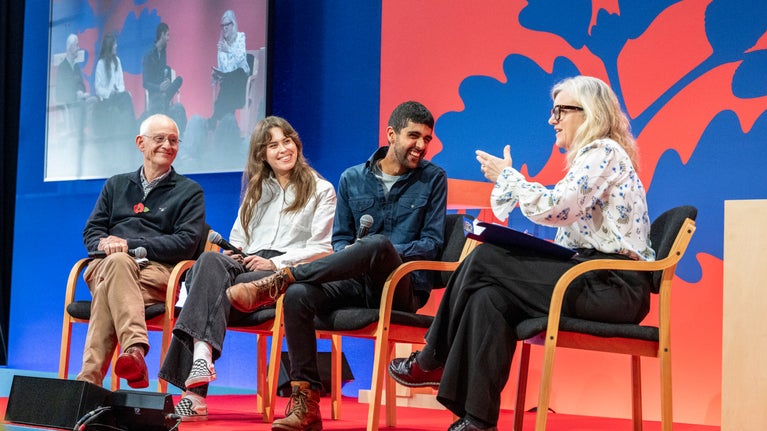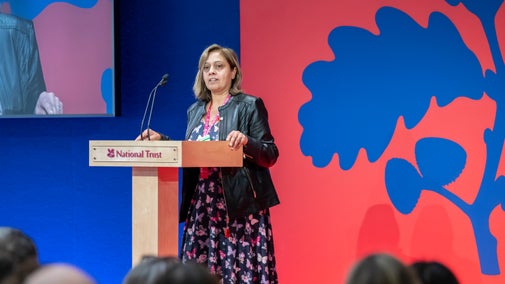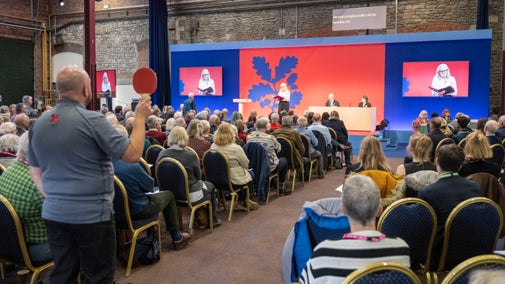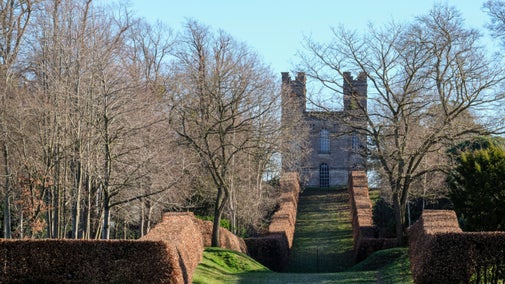
Annual General Meeting
Your Annual General Meeting (AGM) took place on Saturday 8 November 2025. View this year's results including the members' resolutions and Council elections.


In the run up to our Annual General Meeting (AGM), Director of Communications Celia Richardson shared the challenge and importance of healthy, open debate around institutions.
The National Trust is the biggest conservation organisation in Europe, with a history stretching back more than 125 years. We were founded by three Victorians many at the time might have considered eccentric: a housing campaigner who wanted poor city dwellers to enjoy the countryside, a Lake District vicar fighting the railways and a lawyer concerned about the loss of common land. They were united by a shared love of country, history and, above all, conservation.
They set out to protect and promote places of historic interest and natural beauty for the benefit of the nation. That means we are for everyone. Today, we look after heritage that is a common birthright, and we’re proud of this responsibility. It means we deal with sensitive and sometimes symbolic issues, and we must be open to public scrutiny.

Our history is replete with internal debates. They’ve often reflected the social issues of the day. In the past, there have been disagreements about everything from nuclear weapons to nudist beaches, badger culling, wind farms and even our flapjack recipe.
We enjoy a lot of external attention too. Coverage of our stories, both positive and negative, is common. We never did airbrush Easter out of Easter egg hunt promotional materials, and our Chairman stood down this year as he always intended rather than because internet campaigners said he was ‘woke’. But some stories about the Trust have the so-called ‘woozle effect’ – when they are repeated so often they seem almost true by sheer volume of citations.
Millions of members belong to the Trust because they love our simple cause of conservation and the extraordinary places in our care. It’s a privilege to be part of national conversation. And it’s a sign of success when any organisation is of interest or value to people with a broad range of opinions. But our national institutions need healthy and respectful debate if they are to thrive and be handed on to serve future generations as they have served so many in the past and present. Unfortunately that’s not always a reality.
Unlike most other national institutions, we’re a membership organisation. Quite soon we expect an incredible 10 per cent of the population we serve to be signed-up, paying members. Anyone can praise or criticise our work, but our millions of members have democratic voting rights. They can exercise them by standing and voting for the National Trust Council, and by proposing and voting on resolutions at our Annual General Meeting – the main event in our annual governance calendar.
It was a surprise earlier this year when a recording of the Handforth Parish Council meeting emerged as a media sensation, and Jackie Weaver became a star for our times. Some have called it a peculiarly British story. Governance issues have rarely, if ever, been the stuff of t-shirts – or an Andrew Lloyd Webber song. But the spotlight on parish councils has apparently created a surge of interest in governance. And we’re seeing quite a bit of interest in the topic of our AGM.
It’s an essential part of our governance. It happens every autumn. The AGM houses the sort of democratic debate that powers the Trust. This is part of our constitution and it has served us well for many decades. The meeting of minds, the clash of ideas that underpins an institution, must be respected and channelled effectively. It is the life-blood that keeps them relevant and evolving. Some of the debate this year will be impassioned, no doubt. Who would want to debate issues without passion? A culture of respect is also paramount.

A UK-based cultural ambassador said recently: 'I’ve spoken to culture ministries of governments around the world and I know this: very few other countries have anything as precious, extensive, diverse, curatorially exemplary, environmentally committed and accessible as the National Trust and they admire it deeply.'
This unique achievement is thanks to generation after generation of members. The Trust itself has been called a peculiarly British miracle. And it’s been achieved through a culture of cooperation towards a common end – the preservation and promotion of places of historic interest and natural beauty for the benefit of the nation. For many decades that simple, uniting goal has gathered multitudes and enabled them to overcome often big differences of ideology. It helps us remain an organisation that is ‘For everyone, for ever.’

Your Annual General Meeting (AGM) took place on Saturday 8 November 2025. View this year's results including the members' resolutions and Council elections.
Our Board of Trustees has considered the resolutions proposed at the 2025 AGM and shared their response to each.

The 2025 Annual General Meeting (AGM) took place on 8 November 2025 in Swindon. Find out the voting results, including outcomes on the resolutions and elections.

Read the latest National Trust news stories and learn about our position on the national and global issues that affect our work.
